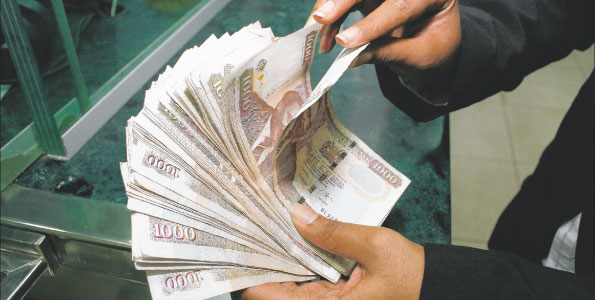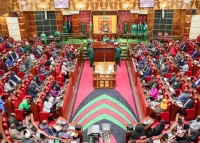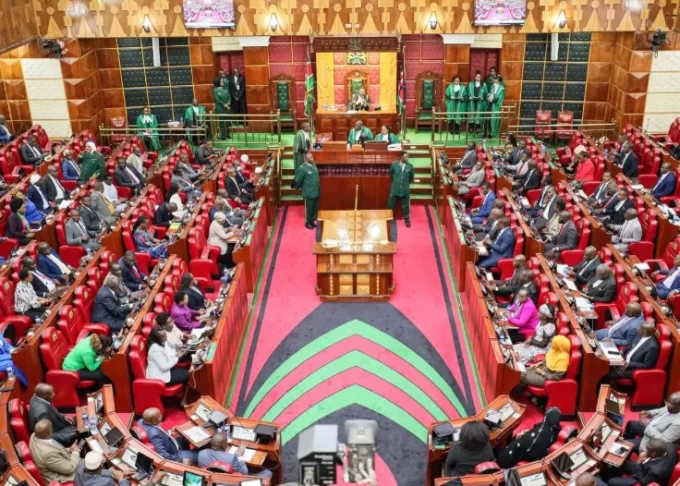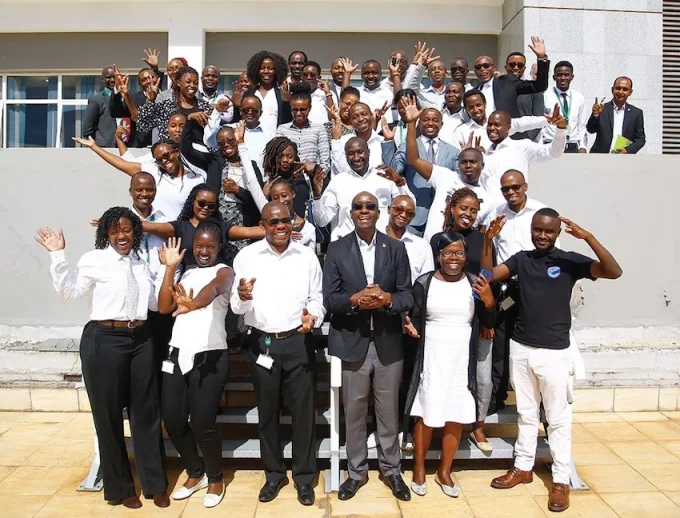[dropcap]I[/dropcap]t is that time of analysis that usually accompanies the release of Safaricom financial statements. Profit was made, a huge one at a time when the economic situation in the country is a bit tough; many listed companies and numerous private others have incurred losses.
The fat profit, cemented Safaricom position in the region as the most profitable company in East and central Africa. Many stake holders are happy. For instance, the gov’t will get a huge dividend boosting its coffers.
But it is M-Pesa that seems to drive the telco’s fortunes and banks are scratching their heads on how to deal with this phenomenon. For M-Pesa has surely and truly weaved its way into the area formerly reserved for banks and other financial institutions.
Now our money ecosystem story can’t be told without M-Pesa. But banks need to play their part or else the money SGR train will continue on without them.Since the capping of interest rates in 2016, banks have refused to lend to the private sector deeming it risky and contributing to the credit squeeze in the economy. But they have no valid reason except that they won’t make as much profit as they used to whey they were free to charge exorbitant rates.
That excuse is not only lame but also self-defeating. We have credit reference bureaus, integrated populations systems (including the ongoing Huduma Namba), and other laws to protect and aid the lenders. We have the technology to make lending cheaper and thus make a profit even with interest caps.
The law on collateral has been revamped. Suppliers be it to supermarkets or gov’t now have legal backing to ensure that they are paid on time. And so forth.In the meantime, mobile lending has increased dramatically. Now Kenyans have multiple loans, sometimes from provider A just to pay provider B.
Safaricom Fuliza has lend more than 60 billion a few months after its launch. Other mobile lenders have also seen their loan books grow.
While some of these loans have become bad debts and thus the increased listings in CRBs, that is not the whole story. Digital and mobile lending will also have its day of reckoning, just like gambling did recently; but the need for loans will not die. By concentrating on government securities and formal employees, the banks are playing it safe but missing the point.
The recent KNBS report points out that 80 percent are employed in the informal sector. So the banks are concentrating on a small piece of the ugali. The real growth is happening out there.Though the Sacco movement also has its challenges, its growing and filling the gap left by the banks. And banks beware; for the minute Safaricom integrates M-Pesa into the Sacco systems, and negate the need for deposit slips (for contributions) and cheques to say buy a piece of land, then me and the bank will handshake one another good bye.
Hoping that the dominance report is implemented, or that M-Pesa gets a banking licence etc., will not bring back the customers. Only the banks positive actions can.If you have money, lend. Lend long term and finance people dreams.
And Kenyans are truly ambitious. Banks are in the business of money. Tinker things around- extend grace period and repayment terms etc. Equity grew because it believed in and lend to the farmer, the mechanic and the hawker.
Even the unemployed. And for the record no bank in Kenya has fallen due to defaults by the SME sector.The very government that banks are lending to is the same one refusing to honour suppliers’ payments. There is an untapped opportunity there. In conclusion, the good book says that money answers all things. If it comes from the bank well and good and much welcome.
Read: Ruto rebrands radio station as he tightens grip on Coast vote
The population is increasing, climate change is real, devolution is already here, big four is a necessity and informal sector thrives on. Banks should get in the middle of it all. But if they refuse, life will go on. Let’s meet again in a few years and swap stories.
In the meantime, Hongera Safaricom!













Leave a comment